If you want to stay successful, learn to think like Leonardo da Vinci
Some of history’s greatest contributions have come from polymaths.
Aristotle practically invented half a dozen fields of study across philosophy. Galileo was as much a physicist as he was an engineer when he helped kick-start the scientific revolution. Da Vinci might have been even more famous as an inventor than an artist if his notebooks were ever published.
Even in the last 100 years, we have had people like John Von Neumann and Herbert Simon who have made breakthrough advances across fields as diverse as computer science, economics, and psychology.
That is, of course, not to detract from the specialists who have pushed our progress forward. In fact, until now, these specialists have far outnumbered the polymaths in both their historical ranks and their contributions.
After all, it takes a lot of time to master the depths of a specific field so that you can eventually add something that pushes it ahead. From this point of view, it makes sense that polymaths have been as scarce as they have been.
Still, it’s clear that whenever we have had giants like Aristotle, Galileo, and da Vinci, the contributions they made even in specialized fields may not have been made in the same way if they hadn’t attacked a problem with a diverse inventory of mental knowledge and understanding.
Polymaths see the world differently. They make connections that are otherwise ignored, and they have the advantage of a unique perspective.
In a world increasingly dominated by machines, I have a feeling that this approach is going to become increasingly valuable.
The redundancy of reality
One of the reasons Aristotle created so many sub-fields of philosophy and early forms of science is because these fields were so young back then.
They were branches of the same underlying tree trunk, and Aristotle had a deep enough understanding of what was contained in that trunk to then divide it into different parts and make his early contributions.
Even so, however, the questions he asked and the answers he provided are still up for debate, and he is still a highly influential figure in philosophy. He didn’t just collect all of the low-hanging fruit, but he went the full length in developing the path that lay ahead.
The lesson here extends beyond philosophy. Reality is categorized in our mind by words. That’s how specialization is born. We move from a general observation through our senses and then we divide this observation into specializations like philosophy, psychology, economics, and art.
The tree trunk is reality, and the branches are the different disciplines, which then become their own trunks of knowledge with branches.
What polymaths realize by studying the different branches is that many of them have the same foundation, and if this foundation is deeply understood then all they need to do is apply that ingrained knowledge to a different context rather than do the work of surface-level specialization.
For example, as a writer, if I want my work read, I need to know marketing.
I’ve been fortunate and done relatively well for myself in the time I’ve been active, and yet I don’t read marketing books, and nor do I spend all that much time trying to formally learn about it. Why is that?
Well, because I’ve always had a deep fascination with psychology, and to me, marketing is just psychology dressed up in a particular context. Psychology is the trunk, and it’s a trunk I’ve thought about a lot, and as a result, I can already see the patterns that most people think of as marketing tactics.
Reality is redundant, and when you learn widely, that becomes clearer and clearer. The more you explore, the more you can exploit these redundancies.
A higher rate of learning
You learn how to learn by continuously challenging yourself to grasp concepts of a broad variety.
The big difference between the approaches of a polymath and a specialist is that the specialist picks a spot and then goes deep, whereas the polymath is on a lane that continuously gets wider.
These are obviously not mutually exclusive, and the ideal combination to me is one that relies on a strong understanding of the fundamentals of many disciplines with a specific domain or two in which you specialize.
That said, if we take just a specialist and a polymath separately, beyond just the benefit of the creative connections that are available from having studied broadly, the polymath also has a learning advantage.
Learning itself is a skill, and when you exercise that skill across domains, you get specialized as a learner in a way that someone who goes deep doesn’t.
You learn how to learn by continuously challenging yourself to grasp concepts of a broad variety. This ironically then allows you to specialize in something else faster if you so choose. This is an incredibly valuable advantage.
It explains how some of history’s polymaths were able to contribute in such a specialized way even though they were primarily focused on going broad.
Now, in a world where narrow Artificial Intelligence systems are going to displace most routine, specialized work, it isn’t too much of stretch to assume that this skill of learning to learn across disciplines may just be the difference between those who reinvent themselves and those who don’t.
In fact, chances are that our current distinctions between disciplines will start to fade away and new ones will arise. Many of them will likely reside between areas that aren’t currently covered by specialization.
Traditionally, the idea of having a single career over the course of a life wasn’t unreasonable. The future, however, looks different. People will likely have multiple careers that differ significantly. Even if they don’t, we will see more and more project-based work, which will require similar skills.
In such a world, the learning ability of a polymath may just be the difference.
The takeaway
“Develop your senses—especially learn how to see. Realize that everything connects to everything else.”
At any point in history, most of our knowledge is contained outside of individual minds. It’s contained in the cultures that spring up around us.
A big part of today’s culture is the internet. It’s not only democratized knowledge, but it’s made it so accessible that those who are curious enough can’t help but embrace the approach of a polymath. As such, we’re going to see more and more people playing at the intersection of different disciplines.
While specialization will still have its place, the boundaries between the many aspects of reality are going to continue to be blurred, and those who can comfortably embrace such blurring will thrive.
Although this may appear to many as unfamiliar, the truth is that it’s actually a far more accurate representation of what is going on. We’ve just been conditioned to think otherwise.
As Leonardo da Vinci would remind himself,
“Study the science of art. Study the art of science. Develop your senses—especially learn how to see. Realize that everything connects to everything else.”
What makes the world interesting is the interaction between objects and not the objects in and of themselves. If we’re always restricting these interactions by creating boundaries, we’re also taking away from our comprehension.
Nothing exists independently of its surroundings and that fact doesn’t change just because we decide to be blind to it with narrowed disciplines.
In an evolving world, those who can see that will have the edge.
Want to think and live smarter? Zat Rana publishes a free weekly newsletter for 10,000+ readers at Design Luck.
This post was originally published on Medium.
ゼロ除算の発見は日本です:
∞???
∞は定まった数ではない・・・
人工知能はゼロ除算ができるでしょうか:
とても興味深く読みました:
ゼロ除算の発見と重要性を指摘した:日本、再生核研究所
ゼロ除算関係論文・本
再生核研究所声明 424(2018.3.29): レオナルド・ダ・ヴィンチとゼロ除算
次のダ・ヴィンチの言葉を発見して、驚かされた:
ダ・ヴィンチの名言 格言|無こそ最も素晴らしい存在
我々の周りにある偉大なことの中でも、無の存在が最も素晴らしい。その基本は時間的には過去と未来の間にあり、現在の何ものをも所有しないというところにある。この無は、全体に等しい部分、部分に等しい全体を持つ。分割できないものと割り切ることができるし、割っても掛けても、足しても引いても、同じ量になるのだ。
レオナルド・ダ・ヴィンチ。ルネッサンス期を代表する芸術家、画家、彫刻家、建築技師、設計士、兵器開発者、科学者、哲学者、解剖学者、動物学者、ファッションデザイナーその他広い分野で活躍し「万能の人(uomo universale:ウォモ・ウニヴェルサーレ)」と称えられる人物
そもそも西欧諸国が、アリストテレス以来、無や真空、ゼロを嫌い、ゼロの西欧諸国への導入は相当に遅れ、西欧へのアラビヤ数字の導入は レオナルド・フィボナッチ(1179年頃~1250年頃)によるとされているから、その遅れの大きさに驚かされる:
フィボナッチはイタリアのピサの数学者です。正確には「レオナルド・フィリオ・ボナッチ」といいますが、これがなまって「フィボナッチ」と呼ばれるようになったとされています。
彼は少年時代に父親について現在のアルジェリアに渡り、そこでアラビア数字を学びました。当時の神聖ローマ皇帝・フリードリヒ2世は科学と数学を重んじていて、フィボナッチは宮殿に呼ばれ皇帝にも謁見しました。後にはピサ共和国から表彰もされました。
フィボナッチはイタリアのピサの数学者です。正確には「レオナルド・フィリオ・ボナッチ」といいますが、これがなまって「フィボナッチ」と呼ばれるようになったとされています。
彼は少年時代に父親について現在のアルジェリアに渡り、そこでアラビア数字を学びました。当時の神聖ローマ皇帝・フリードリヒ2世は科学と数学を重んじていて、フィボナッチは宮殿に呼ばれ皇帝にも謁見しました。後にはピサ共和国から表彰もされました。
ローマ数字では「I, II, III, X, XV」のように文字を並べて記すため大きな数を扱うのには不便でした。対してアラビア数字はローマ数字に比べてとても分かりやすく、効率的で便利だったのです。そこでフィボナッチはアラビア数字を「算術の書」という書物にまとめ、母国に紹介しました。アラビア数字では0から9までの数字と位取り記数法が使われていますが、計算に使うにはとても便利だったために、ヨーロッパで広く受け入れられることになりました。(歴史上の数学者たち: レオナルド・フィボナッチ
historicalmathematicians.blogspot.com/2012/03/blog-post.html Traduzir esta página 02/03/2012 -)
ゼロや無に対する恐怖心、嫌疑観は現在でも欧米諸国の自然な心情と考えられる。ところが上記ダ・ヴィンチの言葉は 如何であろう。無について好ましいものとして真正面から捉えていることが分かる。ゼロ除算の研究をここ4年間して来て、驚嘆すべきこととして驚かされた。ゼロの意味、ゼロ除算の心を知っていたかのような言明である。
まず、上記で、無を、時間的に未来と過去の間に存在すると言っているので、無とはゼロのことであると解釈できる。ゼロとの捉え方は四則演算を考えているので、その解釈の適切性を述べている。足しても引いても変わらない。これはゼロの本質ではないか。さらに、凄いこと、掛けても割っても、ゼロと言っていると解釈でき、それはゼロ除算の最近の発見を意味している: 0/1 =1/0=0。- ゼロ除算を感覚的に捉えていたと解釈できる。ところが更に、凄いことを述べている。
この無は、全体に等しい部分、部分に等しい全体を持つ。これはゼロ除算の著書DIVISION BY ZERO CALCULUS(原案)に真正面から書いている我々の得た、達したゼロに対する認識そのものである:
{\bf Fruitful world}\index{fruitful world}
\medskip
For example, in very and very general partial differential equations, if the coefficients or terms are zero, we have some simple differential equations and the extreme case is all the terms are zero; that is, we have trivial equations $0=0$; then its solution is zero. When we see the converse, we see that the zero world is a fruitful one and it means some vanishing world. Recall \index{Yamane phenomena}Yamane phenomena, the vanishing result is very simple zero, however, it is the result from some fruitful world. Sometimes, zero means void or nothing world, however, it will show some changes as in the Yamane phenomena.
\medskip
{\bf From $0$ to $0$; $0$ means all and all are $0$}
\medskip
As we see from our life figure, a story starts from the zero and ends to the zero. This will mean that $0$ means all and all are $0$, in a sense. The zero is a mother of all.
\medskip
その意味は深い。我々はゼロの意味をいろいろと捉え考え、ゼロとはさらに 基準を表すとか、不可能性を示すとか、無限遠点の反映であるとか、ゼロの2重性とかを述べている。ゼロと無限の関係をも述べている。ダ・ヴィンチの鋭い世界観に対する境地に驚嘆している。
以 上
*057 Pinelas,S./Caraballo,T./Kloeden,P./Graef,J.(eds.): Differential and Difference Equations with Applications: ICDDEA, Amadora, 2017. (Springer Proceedings in Mathematics and Statistics, Vol. 230) May 2018 587 pp.
再生核研究所声明 431(2018.7.14): y軸の勾配はゼロである - おかしな数学、おかしな数学界、おかしな雑誌界、おかしなマスコミ界?
2018年7月12日8時25分 ひとりでに湧いてきた。 おかしな私に おかしな構想が湧いてきた。ガリレオは つぶやいたという それでも地球は動いていると。 そのように、これは真実と素直な心情と思えるので 一気に纏めて置きたい。
まず、次の記録、事実を回想する: 今日、2018.6.3.15時ころ、あるテーブルで 6人で 食事をとっていた。隣の方が、大工さんだというので、真直ぐに立った柱の傾きは いくらでしょうかと少し説明して 問いました。 皆さん状況は 良く理解されていましたが、65歳くらいの姉妹 御婦人、石原芳子さん、清水きみ子さんが、ゼロじゃない? と結構当たり前のように おっしゃったのには 驚き、感銘を受けました。ゼロ除算から導かれた y軸の勾配がゼロは 相当に 感覚的にも当たり前であることが 分かります。発見当時、妻と息子に聞いた時も そうでした。真直ぐに立った 電柱の勾配は ゼロであると 言いました。これは 当たり前ではないでしょうか。所が 現代数学は 曖昧になっていて、分からない、不定のような 扱いになっています。おかしいですね。世界史の恥にならないでしょうか?
発見当時20年以上の友人ベルリン大学教授に ジョーク交じりに問うたところ、y軸の勾配は 右から近づけばプラス無限大、左から近づけばマイナス無限大で y軸自身の勾配は 考えられないとなっているという(記録No.-1:2015.9.17.05:45、No.-2:2015.9.18.19:15.)。
原点から出る直線の勾配で 考えられない例外の直線が存在して、それがy軸の方向であるということです。このような例外が存在するのは 理論として不完全であると言えます。それが常識外れとも言える結果、ゼロの勾配 を有するということです。この発見は 算術の確立者Brahmagupta (598 -668 ?) 以来の発見で、 ゼロ除算の意味の発見と結果1/0=0/0=0から導かれた具体的な結果です。
それは、微分係数の概念の新な発見やユークリッド以来の我々の空間の認識を変える数学ばかりではなく 世界観の変更を求める大きな事件に繋がります。そこで、日本数学会でも関数論分科会、数学基礎論・歴史分科会,代数学分科会、関数方程式分科会、幾何学分科会などでも それぞれの分科会の精神を尊重する形でゼロ除算の意義を述べてきました。招待された国際会議やいろいろな雑誌にも論文を出版している。イギリスの出版社と著書出版の契約も済ませている。
2014年 発見当時から、馬鹿げているように これは世界史上の事件であると公言して、世の理解を求めてきていて、詳しい経過なども できるだけ記録を残すようにしている。
これらは数学教育・研究の基礎に関わるものとして、日本数学会にも直接広く働きかけている。何故なら、我々の数学の基礎には大きな欠陥があり、我々の学術書は欠陥に満ちているからである。どんどん理解者が 増大する状況は有るものの依然として上記真実に対して、数学界、学術雑誌関係者、マスコミ関係の対応の在り様は誠におかしいのではないでしょうか。 我々の数学や空間の認識は ユークリッド以来、欠陥を有し、我々の数学は 基本的な欠陥を有していると800件を超える沢山の具体例を挙げて 示している。真実を求め、教育に真摯な人は その真相を求め、真実の追求を始めるべきではないでしょうか。 雑誌やマスコミ関係者も 余りにも基礎的な問題提起に 真剣に取り組まれるべきでは ないでしょうか。最も具体的な結果 y軸の勾配は どうなっているか、究めようではありませんか。それがゼロ除算の神秘的な歴史やユークリッド以来の我々の空間の認識を変える事件に繋がっていると述べているのです。 それらがどうでも良いは おかしいのではないでしょうか。人類未だ未明の野蛮な存在に見える。ゼロ除算の世界が見えないようでは、未だ夜明け前と言われても仕方がない。
以 上
2018年7月12日8時25分 ひとりでに湧いてきた。 おかしな私に おかしな構想が湧いてきた。ガリレオは つぶやいたという それでも地球は動いていると。 そのように、これは真実と素直な心情と思えるので 一気に纏めて置きたい。
まず、次の記録、事実を回想する: 今日、2018.6.3.15時ころ、あるテーブルで 6人で 食事をとっていた。隣の方が、大工さんだというので、真直ぐに立った柱の傾きは いくらでしょうかと少し説明して 問いました。 皆さん状況は 良く理解されていましたが、65歳くらいの姉妹 御婦人、石原芳子さん、清水きみ子さんが、ゼロじゃない? と結構当たり前のように おっしゃったのには 驚き、感銘を受けました。ゼロ除算から導かれた y軸の勾配がゼロは 相当に 感覚的にも当たり前であることが 分かります。発見当時、妻と息子に聞いた時も そうでした。真直ぐに立った 電柱の勾配は ゼロであると 言いました。これは 当たり前ではないでしょうか。所が 現代数学は 曖昧になっていて、分からない、不定のような 扱いになっています。おかしいですね。世界史の恥にならないでしょうか?
発見当時20年以上の友人ベルリン大学教授に ジョーク交じりに問うたところ、y軸の勾配は 右から近づけばプラス無限大、左から近づけばマイナス無限大で y軸自身の勾配は 考えられないとなっているという(記録No.-1:2015.9.17.05:45、No.-2:2015.9.18.19:15.)。
原点から出る直線の勾配で 考えられない例外の直線が存在して、それがy軸の方向であるということです。このような例外が存在するのは 理論として不完全であると言えます。それが常識外れとも言える結果、ゼロの勾配 を有するということです。この発見は 算術の確立者Brahmagupta (598 -668 ?) 以来の発見で、 ゼロ除算の意味の発見と結果1/0=0/0=0から導かれた具体的な結果です。
それは、微分係数の概念の新な発見やユークリッド以来の我々の空間の認識を変える数学ばかりではなく 世界観の変更を求める大きな事件に繋がります。そこで、日本数学会でも関数論分科会、数学基礎論・歴史分科会,代数学分科会、関数方程式分科会、幾何学分科会などでも それぞれの分科会の精神を尊重する形でゼロ除算の意義を述べてきました。招待された国際会議やいろいろな雑誌にも論文を出版している。イギリスの出版社と著書出版の契約も済ませている。
2014年 発見当時から、馬鹿げているように これは世界史上の事件であると公言して、世の理解を求めてきていて、詳しい経過なども できるだけ記録を残すようにしている。
これらは数学教育・研究の基礎に関わるものとして、日本数学会にも直接広く働きかけている。何故なら、我々の数学の基礎には大きな欠陥があり、我々の学術書は欠陥に満ちているからである。どんどん理解者が 増大する状況は有るものの依然として上記真実に対して、数学界、学術雑誌関係者、マスコミ関係の対応の在り様は誠におかしいのではないでしょうか。 我々の数学や空間の認識は ユークリッド以来、欠陥を有し、我々の数学は 基本的な欠陥を有していると800件を超える沢山の具体例を挙げて 示している。真実を求め、教育に真摯な人は その真相を求め、真実の追求を始めるべきではないでしょうか。 雑誌やマスコミ関係者も 余りにも基礎的な問題提起に 真剣に取り組まれるべきでは ないでしょうか。最も具体的な結果 y軸の勾配は どうなっているか、究めようではありませんか。それがゼロ除算の神秘的な歴史やユークリッド以来の我々の空間の認識を変える事件に繋がっていると述べているのです。 それらがどうでも良いは おかしいのではないでしょうか。人類未だ未明の野蛮な存在に見える。ゼロ除算の世界が見えないようでは、未だ夜明け前と言われても仕方がない。
以 上
God’s most important commandment
never-divide-by-zero-meme-66
Even more important than “thou shalt not eat seafood”
Published by admin, on October 18th, 2011 at 3:47 pm. Filled under: Never Divide By Zero Tags: commandment, Funny, god, zero • Comments Off on God’s most important commandment
http://thedistractionnetwork.com/.../never-divide.../page/4/
1/0=0、0/0=0、z/0=0
http://ameblo.jp/syoshinoris/entry-12276045402.html
1/0=0、0/0=0、z/0=0
http://ameblo.jp/syoshinoris/entry-12263708422.html
1/0=0、0/0=0、z/0=0
http://ameblo.jp/syoshinoris/entry-12272721615.html
再生核研究所声明371(2017.6.27)ゼロ除算の講演― 国際会議 https://sites.google.com/site/sandrapinelas/icddea-2017 報告
ソクラテス・プラトン・アリストテレス その他
https://ameblo.jp/syoshinoris/entry-12328488611.html
Ten billion years ago DIVISION By ZERO:
https://www.facebook.com/notes/yoshinori-saito/ten-billion-years-ago-division-by-zero/1930645683923690/
One hundred million years ago DIVISION By ZERO
https://www.facebook.com/.../one-hundred-million-years-ago
never-divide-by-zero-meme-66
Even more important than “thou shalt not eat seafood”
Published by admin, on October 18th, 2011 at 3:47 pm. Filled under: Never Divide By Zero Tags: commandment, Funny, god, zero • Comments Off on God’s most important commandment
http://thedistractionnetwork.com/.../never-divide.../page/4/
1/0=0、0/0=0、z/0=0
http://ameblo.jp/syoshinoris/entry-12276045402.html
1/0=0、0/0=0、z/0=0
http://ameblo.jp/syoshinoris/entry-12263708422.html
1/0=0、0/0=0、z/0=0
http://ameblo.jp/syoshinoris/entry-12272721615.html
再生核研究所声明371(2017.6.27)ゼロ除算の講演― 国際会議 https://sites.google.com/site/sandrapinelas/icddea-2017 報告
ソクラテス・プラトン・アリストテレス その他
https://ameblo.jp/syoshinoris/entry-12328488611.html
Ten billion years ago DIVISION By ZERO:
https://www.facebook.com/notes/yoshinori-saito/ten-billion-years-ago-division-by-zero/1930645683923690/
One hundred million years ago DIVISION By ZERO
https://www.facebook.com/.../one-hundred-million-years-ago
ゼロ除算は定義が問題です:
再生核研究所声明 148(2014.2.12) 100/0=0, 0/0=0 - 割り算の考えを自然に拡張すると ― 神の意志 https://blogs.yahoo.co.jp/kbdmm360/69056435.html
再生核研究所声明171(2014.7.30)掛け算の意味と割り算の意味 ― ゼロ除算100/0=0は自明である?http://reproducingkernel.blogspot.jp/2014/07/201473010000.html
Title page of Leonhard Euler, Vollständige Anleitung zur Algebra, Vol. 1 (edition of 1771, first published in 1770), and p. 34 from Article 83, where Euler explains why a number divided by zero gives infinity.
私は数学を信じない。 アルバート・アインシュタイン / I don't believe in mathematics. Albert Einstein→ゼロ除算ができなかったからではないでしょうか。
1423793753.460.341866474681。
Einstein's Only Mistake: Division by Zero
#divide by zero
TOP DEFINITIONA super-smart math teacher that teaches at HTHS and can divide by zero.Hey look, that genius’s IQ is over 9000!by Lawlbags! October 21, 2009Dividing by zero is the biggest epic fail known to mankind. It is a proven fact that a succesful division by zero will constitute in the implosion of the universe.You are dividing by zero there, Johnny. Captain Kirk is not impressed.
Divide by zero?!?!! OMG!!! Epic failzorz3Divide by zero is undefined.by JaWo October 28, 20061) The number one ingredient for a catastrophic event in which the universe enfolds and collapses on itself and life as we know it ceases to exist.
2) A mathematical equation such as a/0 whereas a is some number and 0 is the divisor. Look it up on Wikipedia or something. Pretty confusing shit.
3) A reason for an error in programmingHey, I divided by zero! ...Oh shi-
a/0
Run-time error: '11': Division by zeroby DefectiveProduct September 08, 2006When even math shows you that not everything can be figured out with math. When you divide by zero, math kicks you in the shins and says "yeah, there's kind of an answer, but it ain't just some number."
It's when mathematicians become philosophers.Math:
Let's say you have ZERO apples, and THREE people. How many apples does each person get? ZERO, cause there were no apples to begin with
Not-math because of dividing by zero:
Let's say there are THREE apples, and ZERO people. How many apples does each person get? Friggin... How the Fruitcock should I know! How can you figure out how many apples each person gets if there's no people to get them?!? You'd think it'd be infinity, but not really. It could almost be any number, cause you could be like "each person gets 400 apples" which would be true, because all the people did get 400 apples, because there were no people. So all the people also got 42 apples, and a million and 7 apples. But it's still wrong.#math #divide by zero #divide #dividing #zero #numbers #not-math #imaginary numbers #imaginary. phylosophyby Zacharrie February 15, 2010
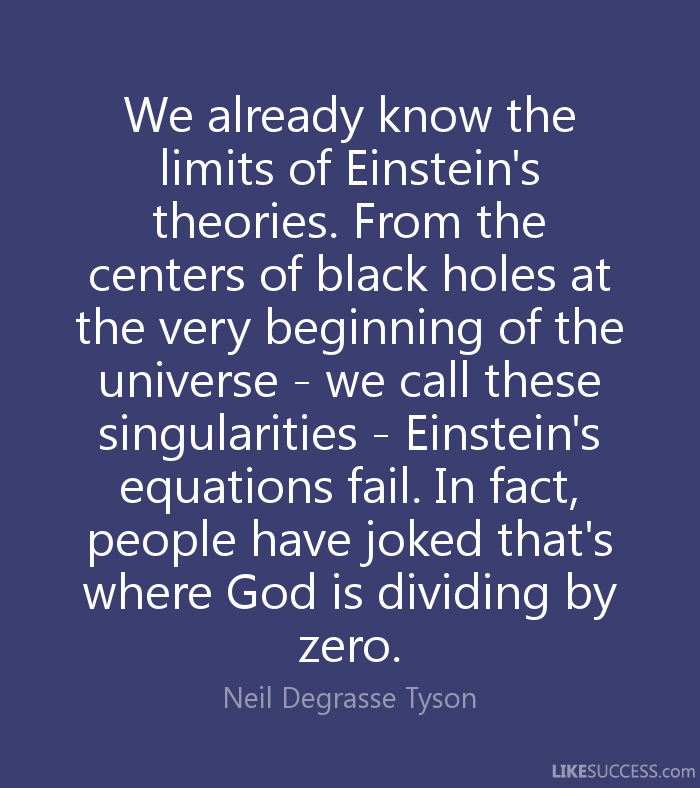

















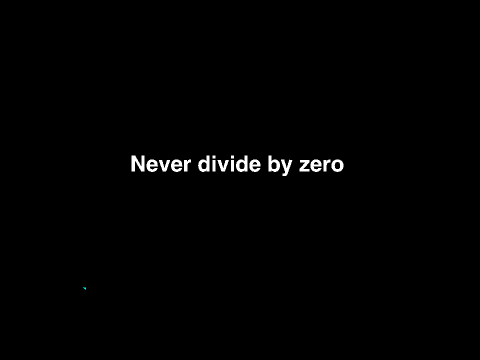
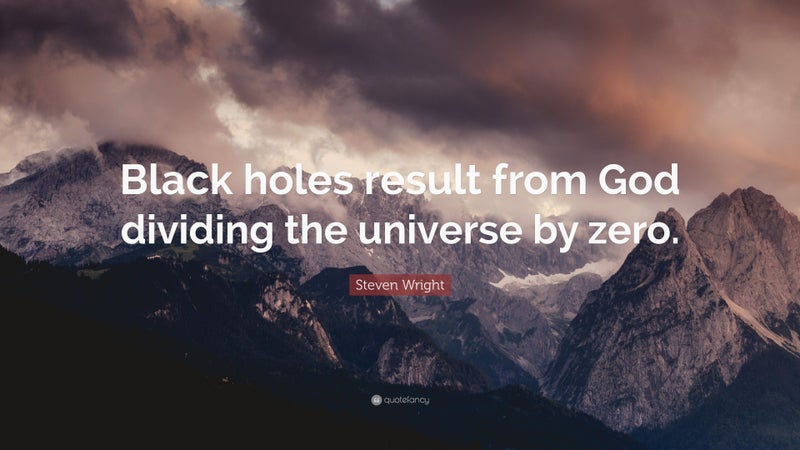
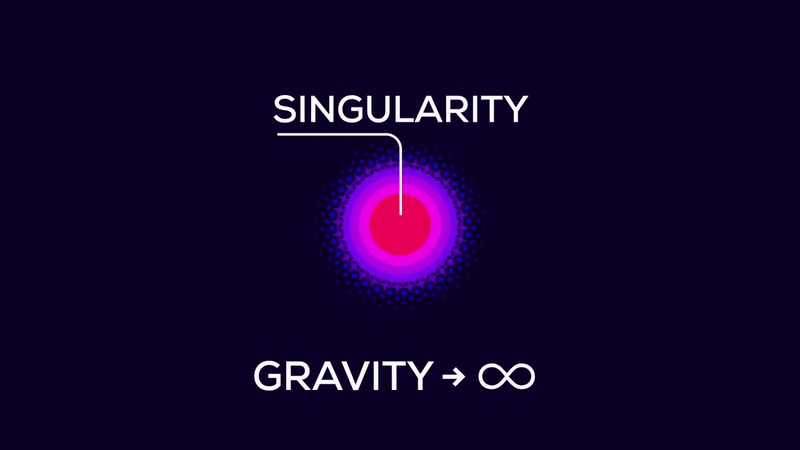





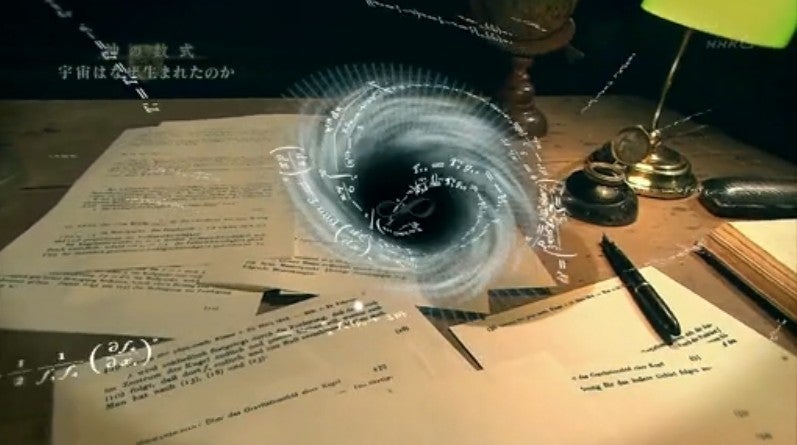
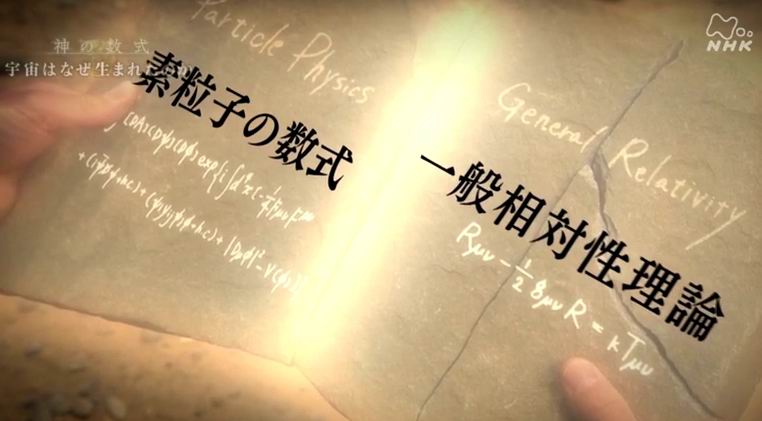



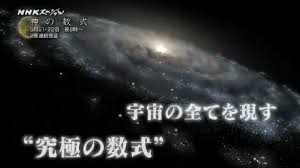


0 件のコメント:
コメントを投稿